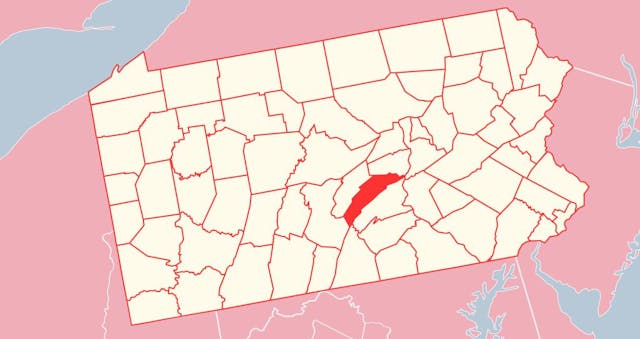Rehabs in Juniata
Juniata County is located in the Commonwealth of Pennsylvania. The total area is 394 square miles. Mifflintown is the seat. According to the 2010 census, its population is 24,636. The county mainly consists of agricultural and forested land.
Yet, the county is a part of such a state having rising statistics for drug and alcohol addiction. As of the 2015 report of the Pennsylvania Department of Transportation, there were 10,558 alcohol-related accidents (74% of them were males). Here also, there are various Juniata County rehabs for helping addicted people.
Substance Abuse Evaluation
Before starting the care program, one must get evaluated for the disease fully. It takes place between a patient and a counselor. During the 2 hours of the evaluation process, a counselor uses various activities.
To explain, they are for revealing important details about addiction, and mental health. Among those activities are health and mental exams, interview and form completion, screening, and so on.
The assessment stage helps the medical staff determine which care option will best fit a patient's unique needs. So it is very important to be concise and honest in answers when being evaluated.
Medical Detox
As a progressive disease, addiction will never go away without healing. Thus, the first procedure in the recovery journey is medical detox. It has a vital function. When a person stops using substances he/she begins experiencing painful and even dangerous withdrawal.
Well-organized detox will help to manage them safely. To explain, up to 7 days of the lasting procedure will release the body of toxins. Additionally, it will get the body ready for the coming treatment processes.
Types of Rehabs in Juniata County
For an addicted person, it is a more overwhelming experience to choose a proper rehab center. So, we will guide everyone through the available types below.
Inpatient
As a rule, inpatient rehab centers provide the most effective treatment. They have a live-in facility care structure delivering 24-hour supervised care. Here the patients can be safe and confident.
It is because they get social support and a warm attitude from the experienced medical staff. For every single patient, a unique care plan is designed.
Outpatient
Compared with the above-mentioned method these facilities are for milder cases. They also serve for aftercare purposes. The matter is that here there is no need to stay at the clinic all day long. After getting the daily recovery program, one can return to his/her usual lifestyle.
Also, here every addicted person has an individualized recovery program. No treatment would have the desired result without it.
Payment Amount and System
There is no fixed price for the recovery process. Many factors may affect it; the facility type, offered amenities, treatment duration, addiction level, and so on. Everyone can find an affordable option that will fit his needs and budget.
In case the patient has trouble affording the treatment, most of the centers offer financial aid programs. In addition, they cover the fees with insurance or Medicaid.
Luxury Rehab Prices
Having enough funds for recovery, one can afford luxury clinics. These are the most expensive clinics with high-class amenities, entertainment, food, etc.
So, the patients are to pay from $15,000 to $20,000 for 30 days, whereas they may pay $5,000 for the same period at a usual clinic.
Helping Addicted Teens to Get Sobriety
Sometimes, teenagers are unwilling to attend rehab because of an underlying fear of the process. A parent can help to reduce much of that fear simply by taking the time to familiarize him/her with the process. This might even include simply visiting the rehab facility.
There a healthcare professional can talk to the teen and answer any questions that he/she might have. So, to start, they should know what to expect for a full recovery.
Luckily some Juniata County rehabs offer care programs for teenagers. Thanks to their special care approach teens get sobriety easier and faster.

